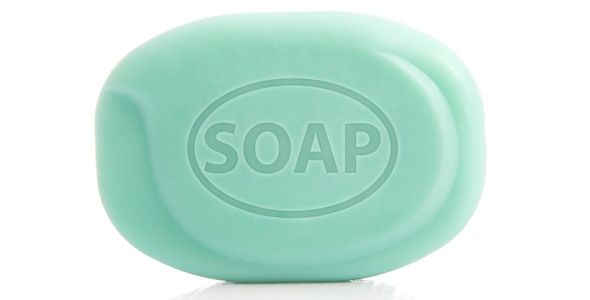Cleanliness, Colour, and Contradictions: How Racism Warps the Hygiene Debate Between Black and White

A strange debate resurfaces every few months on social media: should people bathe every day? (a funny yet serious question). Celebrities like Ashton Kutcher and Mila Kunis once went viral for admitting they rarely bathe their children unless “they see dirt.” Jake Gyllenhaal confessed he doesn’t see bathing as “necessary.”
Each time, Black communities online respond with a mix of disbelief and humour. “Wait,” one tweet read, “y’all really just… don’t wash?” What sounds like a silly internet argument actually opens the door to a deeper question: why do Black and white communities view hygiene so differently, and why has cleanliness always been racialised?
At the heart of the matter is contradiction. White people have long stereotyped Black people as dirty, smelly, or uncivilised, stereotypes with centuries of history. Yet in practice, many Black people emphasize bathing daily (sometimes twice), moisturizing diligently with oils and butters, and treating hygiene as both a necessity and a form of self-respect.
Meanwhile, in white cultural spaces, arguments for not bathing daily, reusing bath water historically, or doing “the bare minimum” have been normalized and even defended in the name of dermatology. The irony is almost too sharp: those who created the idea of dirtiness attached to Blackness are often the ones holding on to practices closer to it.
The Cultural Clash in Hygiene Practices
Let’s begin with the present. For many white people in Europe and North America, bathing every day is often seen as optional. Dermatologists are frequently cited in articles claiming that daily showers strip the skin of its natural oils. Some white families still share bathwater, a practice common in older generations where parents bathed first, then children went into the same tub.
Moisturizers, when used, are often minimal and scented which is a far difference from the shea butter or cocoa butter tubs that are a fixture in many Black households.
For Black communities, however, hygiene is both cultural and climatic. Growing up in hot environments like Africa or the Caribbean makes bathing more than just a choice, it is survival in the heat. Even in colder climates, Black people tend to carry the habit of bathing daily or even twice: once in the morning to start the day fresh, once at night to wash off the sweat, dirt, and city dust.
Moisturizing is non-negotiable, not just for comfort but for health. Black skin shows dryness differently as “ashy” skin is visible and culturally unacceptable. Oils, Vaseline, shea butter, and other butters are household staples passed down generations. To show up unwashed or unmoisturized is to risk shame. Hygiene is tied to dignity, respect, and care for the self.

pc: google
Historical Roots of Hygiene Narratives
The contrast becomes starker when we look back. Europe for centuries was notorious for infrequent bathing. In the Middle Ages, communal bathhouses were eventually shut down due to associations with immorality, disease, and sin. For much of European history, perfumes and powders masked odour more than soap and water did.
Social Insight
Navigate the Rhythms of African Communities
Bold Conversations. Real Impact. True Narratives.
By the time Europeans began colonizing Africa and the Americas, they encountered societies where frequent washing, oiling the skin, and grooming were cultural norms. Yet in a racist twist, colonizers painted Africans as dirty, barbaric, and in need of “civilizing.”
Racist propaganda leaned on a symbolic link where whiteness equated to purity, cleanliness, and godliness, while blackness equated to dirt, filth, and sin. The skin itself became a metaphor.
Black bodies were depicted as stained, less-than-human, and closer to the earth and therefore justifying enslavement, segregation, and colonial rule. The irony is glaring — Europeans who often bathed sparingly were claiming moral superiority over Africans who washed daily.
Racism, Skin Colour, and the Idea of Cleanliness
This contradiction survived into modern times. In the United States, enslaved Africans and later freed Black people were accused of smelling bad, even as they often worked in the most labour-intensive, sweat-inducing conditions without access to proper facilities.
In schools, workplaces, and neighborhoods, stereotypes about Black hygiene circulated, reinforcing exclusion. Even today, jokes about Black people being dirty persist in racist spaces online.
Yet whiteness still functions symbolically as “clean.” The very colour white suggests purity, sanitation, innocence. Ads for soap and laundry in the early 20th century leaned on racialized imagery: white clothing or white skin becoming cleaner in contrast to dark backgrounds. To be white was to be clean, to be Black was to be dirty, regardless of actual hygiene practices.
The irony is staggering. When white celebrities casually say they skip showers, society shrugs. When Black people emphasize bathing, moisturizing, and smelling good, it is seen as excessive or even mocked. Racism shapes who gets to define what is “normal hygiene” and who is judged against stereotypes.
Modern-Day Hygiene Debates
The internet has become the stage for this cultural and racial clash. Each time a white celebrity admits to not bathing often, Black Twitter lights up with jokes, memes, and side-eyes. “This is why you can’t borrow people’s towels,” one tweet joked. The humour, however, carries a serious edge as it calls out the hypocrisy of a society that for centuries labeled Black people as dirty while excusing unhygienic norms in white spaces.
For Black communities, hygiene is tied not only to health but to survival in a racist world. The pressure to be “extra clean” is about disproving stereotypes. Smelling fresh, being moisturized, and presenting a neat appearance is armor against assumptions. In many ways, Black people cannot afford to be anything less than clean.
Beyond Bathing: The Deeper Implications
Social Insight
Navigate the Rhythms of African Communities
Bold Conversations. Real Impact. True Narratives.
The hygiene debate is not about soap and water alone. It is about who gets to control the narrative of cleanliness. It is about whose practices are considered standard, and whose are mocked or pathologized?
Black people bathe frequently not just because of culture or climate, but also because of a history where being accused of dirtiness could lead to exclusion, punishment, or humiliation.
Meanwhile, white people can afford to redefine hygiene around comfort, dermatology, or even laziness without it ever becoming a racial indictment. When they skip showers, it is individual preference but when Black people are stereotyped, it is collective condemnation. That imbalance reveals how deep racism runs.
The Continued Irony
The irony cannot be overemphasised. Those stereotyped as dirty often live with stricter hygiene habits, while those equated with purity often normalize practices closer to dirtiness. Hygiene, then, is not just about skin but about skin colour and about how racism has shaped our very notions of clean and dirty.
As the online debates continue, one truth stands out: the problem has never been soap. The problem is the stain of racism that continues to dictate who is allowed to be clean, who is branded as dirty, and whose habits are excused or condemned. Perhaps it is time to accept what history and reality already show, cleanliness has no colour.
Recommended Articles
There are no posts under this category.You may also like...
When Sacred Calendars Align: What a Rare Religious Overlap Can Teach Us

As Lent, Ramadan, and the Lunar calendar converge in February 2026, this short piece explores religious tolerance, commu...
Arsenal Under Fire: Arteta Defiantly Rejects 'Bottlers' Label Amid Title Race Nerves!

Mikel Arteta vehemently denies accusations of Arsenal being "bottlers" following a stumble against Wolves, which handed ...
Sensational Transfer Buzz: Casemiro Linked with Messi or Ronaldo Reunion Post-Man Utd Exit!

The latest transfer window sees major shifts as Manchester United's Casemiro draws interest from Inter Miami and Al Nass...
WBD Deal Heats Up: Netflix Co-CEO Fights for Takeover Amid DOJ Approval Claims!

Netflix co-CEO Ted Sarandos is vigorously advocating for the company's $83 billion acquisition of Warner Bros. Discovery...
KPop Demon Hunters' Stars and Songwriters Celebrate Lunar New Year Success!

Brooks Brothers and Gold House celebrated Lunar New Year with a celebrity-filled dinner in Beverly Hills, featuring rema...
Life-Saving Breakthrough: New US-Backed HIV Injection to Reach Thousands in Zimbabwe

The United States is backing a new twice-yearly HIV prevention injection, lenacapavir (LEN), for 271,000 people in Zimba...
OpenAI's Moral Crossroads: Nearly Tipped Off Police About School Shooter Threat Months Ago
ChatGPT-maker OpenAI disclosed it had identified Jesse Van Rootselaar's account for violent activities last year, prior ...
MTN Nigeria's Market Soars: Stock Hits Record High Post $6.2B Deal

MTN Nigeria's shares surged to a record high following MTN Group's $6.2 billion acquisition of IHS Towers. This strategi...
